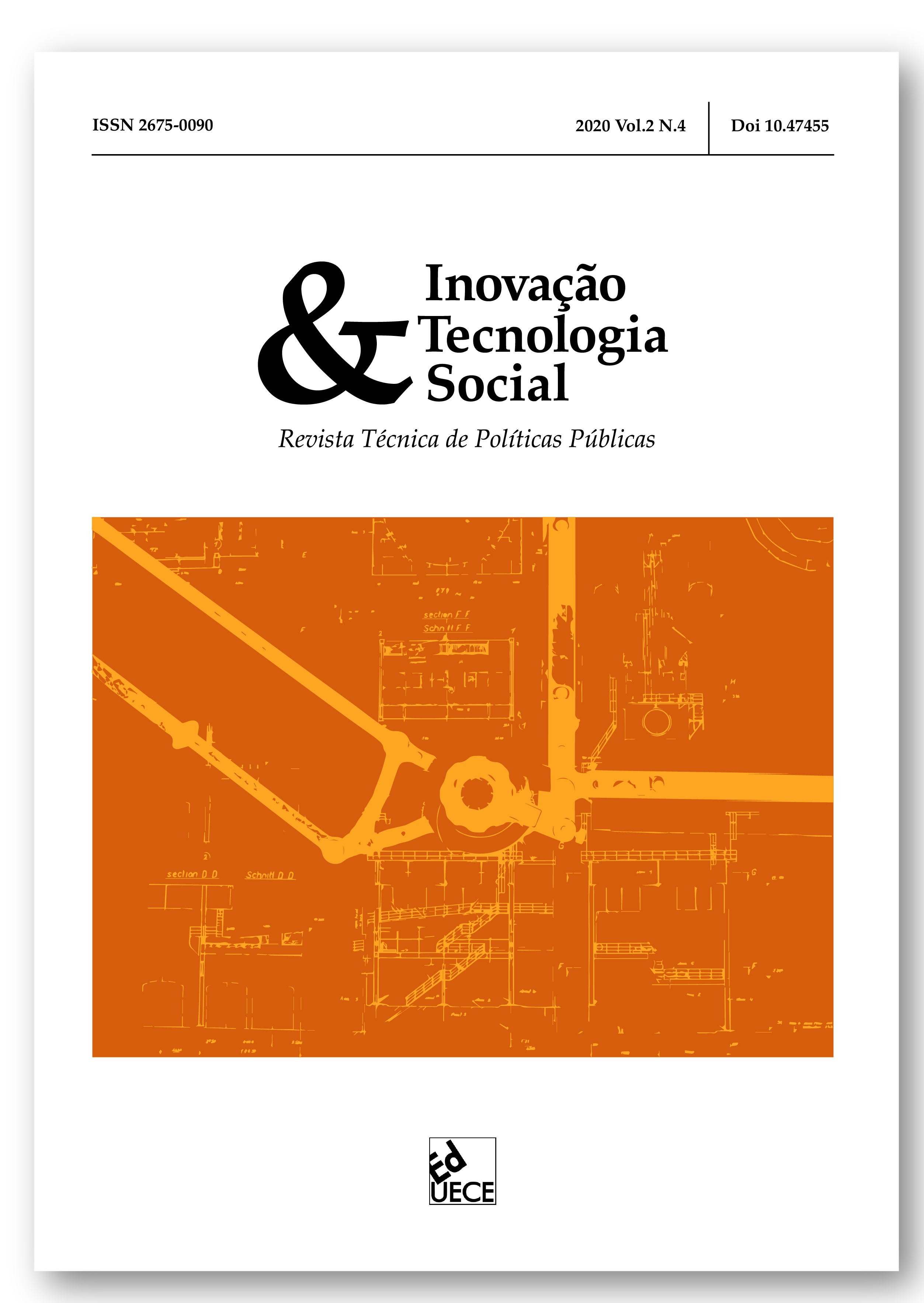Walter Benjamim e a Escola Nacional Florestan Fernandes (ENFF) do MST:
aproximações e cruzamentos
DOI:
https://doi.org/10.47455/2675-0090.2020.2.4.4766Keywords:
walter benjamim, enff, hopeAbstract
The main objective of the current article is to weave together the revolutionary-romantic thought of the philosopher Walter Benjamim with the experience of the National School Florestan Fernandes (ENFF) of the MST. How would this Jewish-German thinker who lived through the tensions arising from the first half of the 20th century have a relationship with this rebellious school that emerged in the early 21st century? Is there a possibility of neural and coronary connections between both? What would be the theoretical and practical enrichment of this approach? It is not a matter of making the Benjamin theory fit the forceps in the ENFF experience, but rather a little history of points of intercession between their dreams and fears, respecting the time lapse that separates them and the singularities of each historical context. It is a battle-ball between embracing worldviews, ideas and ideals convergent that illuminate points of the historical intelligibility of our dramas and current expectations. The intention is, therefore, to inventory possible intersections, such as: if that is the magician of profane illuminations for his passionate bet on nostalgic redemption that inspires a utopia, questioning the present from the past struggles with a view to the emergence of the Revolution; this is the space dedicated to the theoretical-practical operationalization of revolutionary praxis itself, since it saves and updates the working class struggle verb, honoring the ancestral commitments of those who fell on the “wheels of the majestic chariots of progress”. Benjamin's dream is about the future, just as ENFF's is, witch the future of hope. Both recognize the fundamental importance of the battles for the memory inscribed in the tradition of the oppressed Both the ENFF and the thinker are spiritualists, that is, they conceive that, through the hostility of the class struggle, the oppressed they should not do without the help of the spiritual forces, the one that operationalizes their soul through the mystical ,he exercises this through his faith in the messianic and redemptive forces of humanity, producing of courage, hope, tenacity and love for the present struggle.
References
ALBUQUERQUE, Gerson Rodrigues de. História e historiografia do Acre: Notas sobre os silêncios e a lógica do progresso. Tropos: comunicação, sociedade e cultura, Rio Branco, AC, v. 1, n. 4, 7 dez. 2015.
ANDRADE, A Rosa do Povo. 21. ed. Rio de Janeiro: Record, 2000.
BENJAMIN, Walter. Obras escolhidas: Magia e técnica, arte e política. Ensaios sobre literatura e história da cultura. Tradução: Sérgio Paulo Rouanet. São Paulo: Brasiliense, 1987. v. 1.
. Escritos sobre mito e linguagem. Trad. Susana Kampff e Ernani Chaves. São Paulo: Duas Cidades; Ed. 34, 2011.
. Origem do drama trágico alemão. Tradução: João Barrento. 2. ed. Belo Horizonte: Autêntica, 2013.
. Magia e técnica, arte e política: ensaios sobre literatura e história da cultura. Trad. Sérgio Paulo Rouanet. 7. ed. São Paulo: Brasiliense, 2012.
. BENJAMIN, Walter. Passagens. Tradução: Irene Aron. Belo Horizonte: Editora UFMG, 2006.
BOGO, Ademar. A mística: parte da vida e da luta. Disponível em:
<http://base.dph.info/pt/fiches/dph/fiche-dph-8237.html> Acesso em: 11 nov. 2019.
COELHO, Fabiano. A Prática da Mística e a Luta pela Terra no MST. 2010. 284 f. Dissertação (Mestrado em História) – Programa de Pós-Graduação em História da faculdade de Ciências Humanas, Universidade Federal da Grande Dourados, Dourados, 2010. Disponível em:
<http://www.reformaagrariaemdados.org.br/biblioteca/disserta
%C3%A7%C3%A3o-e-tese/mestrado-pr%C3%A1tica-da-m%C3%Adstica-e-luta-pela- terra-no-mst> Acesso em: 15 nov. 2019
ENFF. Agenda 2015: 10 anos ENFF (2005-2015).
FERNANDES, Bernardo M.; STEDILE, João P. Brava Gente: a trajetória do MST e a luta pela terra no Brasil. 3. ed. São Paulo: Editora Fundação Perseu Abramo, 2005.
FUNARI, Pedro Paulo A. Considerações em torno das "teses sobre Filosofia da história", de Walter Benjamin. CRÍTICA MARXISTA .p.47 .Disponível em¨
https://www.ifch.unicamp.br/criticamarxista/arquivos_biblioteca/3_PPFunari.pdf
LÖWY, Michael. “A contrapelo”: A concepção dialética da cultura nas teses de Walter Benjamin (1940). Lutas Sociais, São Paulo, n. 25/26, p. 20-28, 2. sem. 2010 e 1 sem. 2011, 2011. Disponível em:
<http://www4.pucsp.br/neils/downloads/Vol.2526/michael-lowy.pdf>. Acesso em: 15 nov. 2019.
. Walter Benjamin e o Surrealismo: As núpcias químicas de dois materialismos.Revista Limiar, São Paulo, v. 3, ed. 6, p. 54-61, 2. sem. 2016.
Disponível em:
. Acesso em: 17 set. 2019.
. Por um marxismo crítico. Lutas Sociais, São Paulo, ed. 3, p. 21-30, 1997. Disponível em: <https://revistas.pucsp.br/ls/article/view/18981/pdf>. Acesso em: 12 nov. 2019.
. Walter Benjamin: aviso de incêndio: uma leitura das teses "Sobre o conceito de historia". Tradução: Wanda Nogueira Caldeira Brant. São Paulo: Boitempo, 2005. 160 p.
. A teoria da revolução no jovem Marx. Tradução: Anderson Gonçalves. São Paulo: Boitempo, 2012. 224 p.
MAIA, Luciola Andrade. Mística, educação e resistência do Movimento dos Sem Terra. Fortaleza: Edições UFC, 2008.
MARX, Karl. Crítica da filosofia do Direito de Hegel - [2.ed revista]. - São Paulo : Boitempo, 2010.
MÉSZÁROS, István. O desafio e o fardo do tempo histórico. São Paulo: Boitempo, 2007.
MST. A Questão da Mística no MST. [S. l.: s. n.], 1991.
SANTOS NETO, Arthur Bispo dos. A interpretação alegórica do mundo na filosofia de Walter Benjamim. Maceió: UFAL, 2007.
THOMPSON, E. P. A formação da classe operária inglesa: A árvore da liberdade. 2. ed. Rio de Janeiro: Paz e terra, 1987. v. 1.



